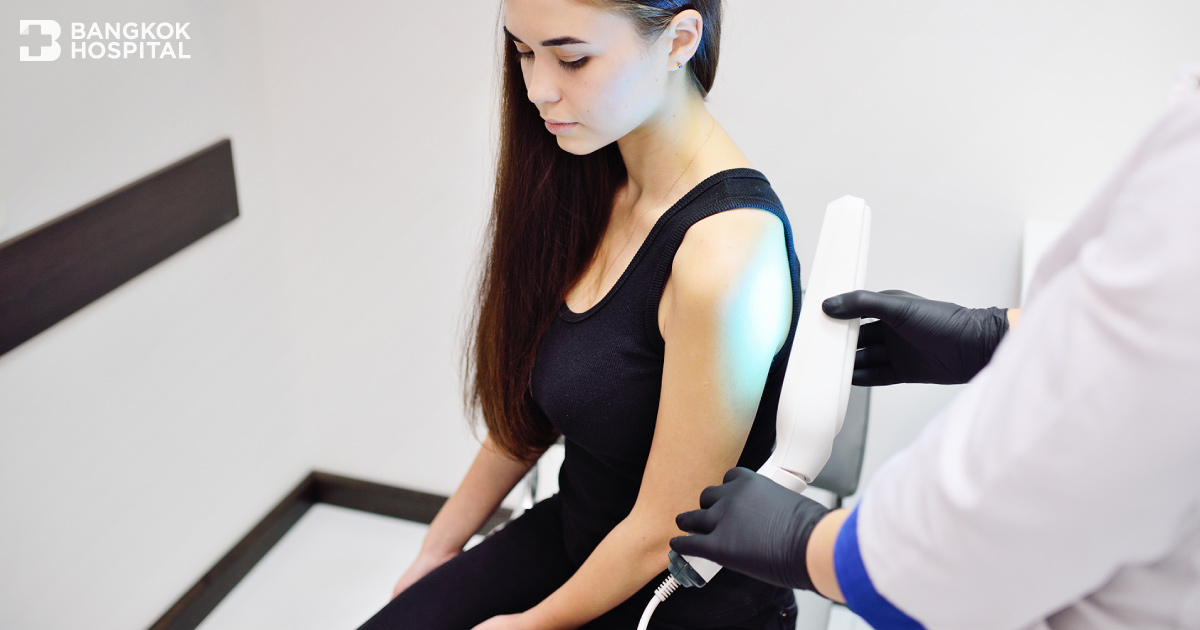Currently, there is no cure for psoriasis. Most treatments involve the use of topical medications along with oral medications. However, it has recently been found that treatment with ultraviolet light can speed up the healing process.
Ultraviolet Radiation for Psoriasis Treatment
There are 2 types of ultraviolet radiation used for the treatment of psoriasis:
-
Psoralen combined with ultraviolet A (PUVA) has a wavelength of 320 – 400 nanometers and is used in conjunction with psoralen medication for patients with moderate to severe skin symptoms or as a combination treatment with topical or oral medications. Patients receive light treatment 2 – 3 times a week, with improvement observed after about 12 – 18 sessions. Continuous light treatment may be required to prevent relapses for at least 3 consecutive months, offering around 70 – 80% effectiveness. Side effects are minimal, though some patients may experience itchiness and redness in the treated areas. The primary advantage is that the recurrence of the condition is generally lower than with topical or oral medications.
-
Ultraviolet B (UVB) originally used a Broadband UVB light range of 290 – 320 nanometers which had considerable side effects. It has since been developed to a Narrowband UVB with a wavelength of 311 nanometers, eliminating the need for psoralen medication before treatment.
Types of UV PHOTOTHERAPY Devices
There are various types of light therapy devices, such as those for whole-body exposure, hands and feet only, scalp only, and for small, localized areas, allowing for treatment tailored to the severity and location of the rash without excessive ultraviolet exposure.
Contraindications for UV PHOTOTHERAPY
-
History of photosensitivity
-
Skin cancer patients
-
Cataract patients
-
Patients taking medications that increase sensitivity to sunlight, such as certain diabetes and high blood pressure medications. These patients must inform the physician in advance to plan the treatment accordingly.
In addition to psoriasis, ultraviolet light therapy can also treat other skin conditions, such as
- Vitiligo
- Contact dermatitis
- Inflammatory skin rashes
- Chronic itching
- Itching associated with diabetes
- Liver disease
- Kidney disease
- Unexplained itching
- Rosacea
- Certain types of skin cancer






